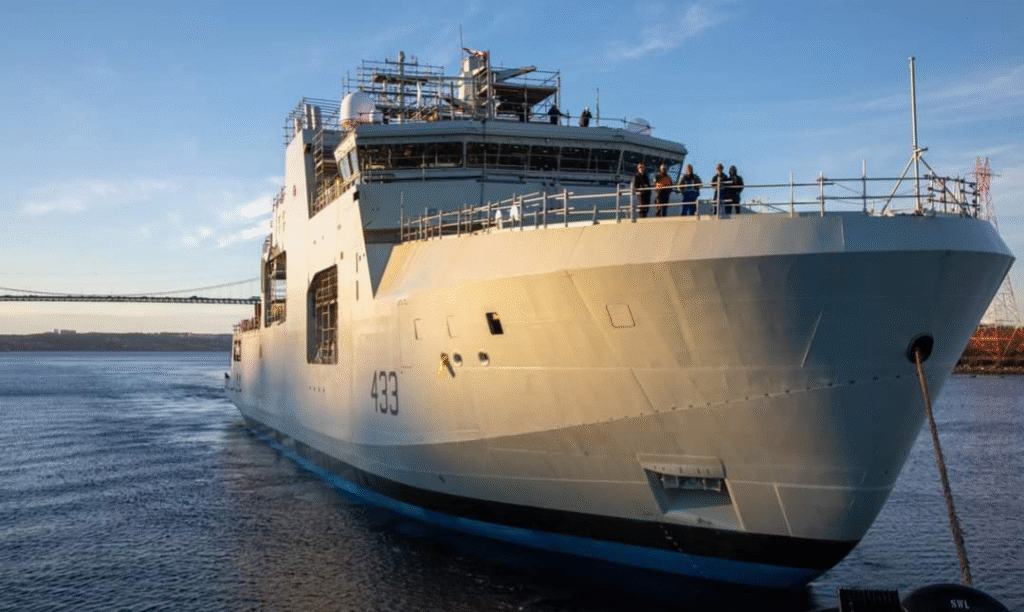The Canadian warship HMCS William Hall seized more than 1,300 kilograms in the Caribbean Sea in May 2025 with the help of a U.S. Coast Guard Law Enforcement Detachment. ROYAL CANADIAN NAVY
The Watch Staff
A Canadian warship carrying an embedded United States Coast Guard Law Enforcement Detachment (LEDET) carried out two major drug seizures while on patrol in the Caribbean Sea as part of Operation CARIBBE in late May 2025. The seizure of more than 1,300 kilograms of cocaine in two interdictions on May 29 and May 31 is the most recent example of Canada’s commitment to disrupt the smuggling of illegal narcotics into North America, the Canadian Department of National Defence said in a June 4 news release.
In each incident, multirole rescue boats carrying U.S. Coast Guardsmen deployed from His Majesty’s Canadian Ship William Hall to intercept suspicious vessels. “These successful interdictions underscore the enduring collaboration and interoperability between the Royal Canadian Navy (RCN) and USCG and support international efforts to prevent the flow of illicit substances into Canada and North America,” stated the release.
Coast Guard LEDETs have sailed on Canadian warships in Operation CARIBBE since 2010 when Canada and the U.S. signed an agreement allowing them to embark on Canadian ships during ongoing operations. The Canadian Armed Forces (CAF) have participated in the operation since 2006, part of an effort to suppress drug trafficking in the region and to support the U.S.-led Operation Martillo. “Embarking USCG LEDETs on RCN ships during Operation CARIBBE allows the CAF to better support this multinational counter-narcotics effort,” the release stated.
Canada’s contribution to U.S.-led counternarcotics operations is ongoing. The CAF deploys ships and aircraft to the Caribbean region on a rotating basis. The HMCS William Hall is the second warship to execute the mission in 2025, replacing the HMCS Harry DeWolf, which returned to its home port of Halifax, Canada, in March after a successful tour in which 750 kilograms of cocaine were seized, the Defence Department said.
“Canada’s contribution to United States-led Enhanced Counternarcotics Operations under Joint Interagency Task Force South represents an important dimension of our relationship with our ally, the United States, and partners in the region. This collective effort enables us to achieve greater success in making the continent more secure from the threats posed by illicit trafficking and supports broader efforts to enhance regional and continental security,” the release stated.
The HMCS William Hall is one of the Harry DeWolf-class of Artic Offshore Patrol Vessels (AOPV) that have become the workhorses of the Royal Canadian Navy. Six AOPVs currently are in the RCN. A versatile 103-meter warship designed to withstand frigid seas and conditions in the Arctic, the AOPV can carry a crew of up to 85 and attain speeds of 31 kilometers per hour, according to an RCN fact sheet. They are equipped with a BAE 25mm Mk 38 machine gun system that features a highly accurate targeting and surveillance system, as well as the M242 cannon. Depending on mission requirements, the ships can carry aircraft ranging from small utility aircraft up to the CH-148 Cyclone maritime helicopter. The HMCS William Hall entered service in May 2024, departing for its Caribbean mission in mid-May 2025.

